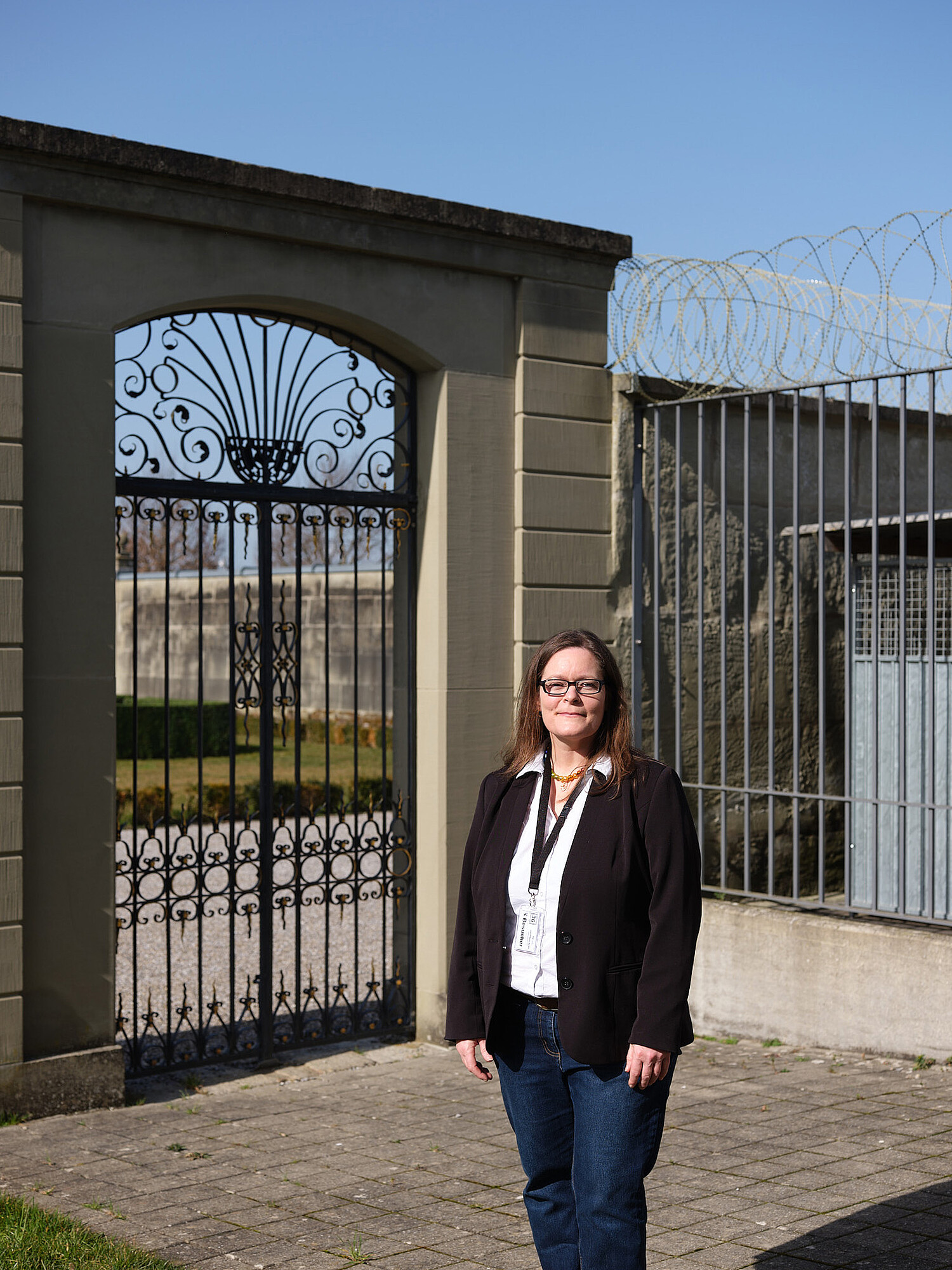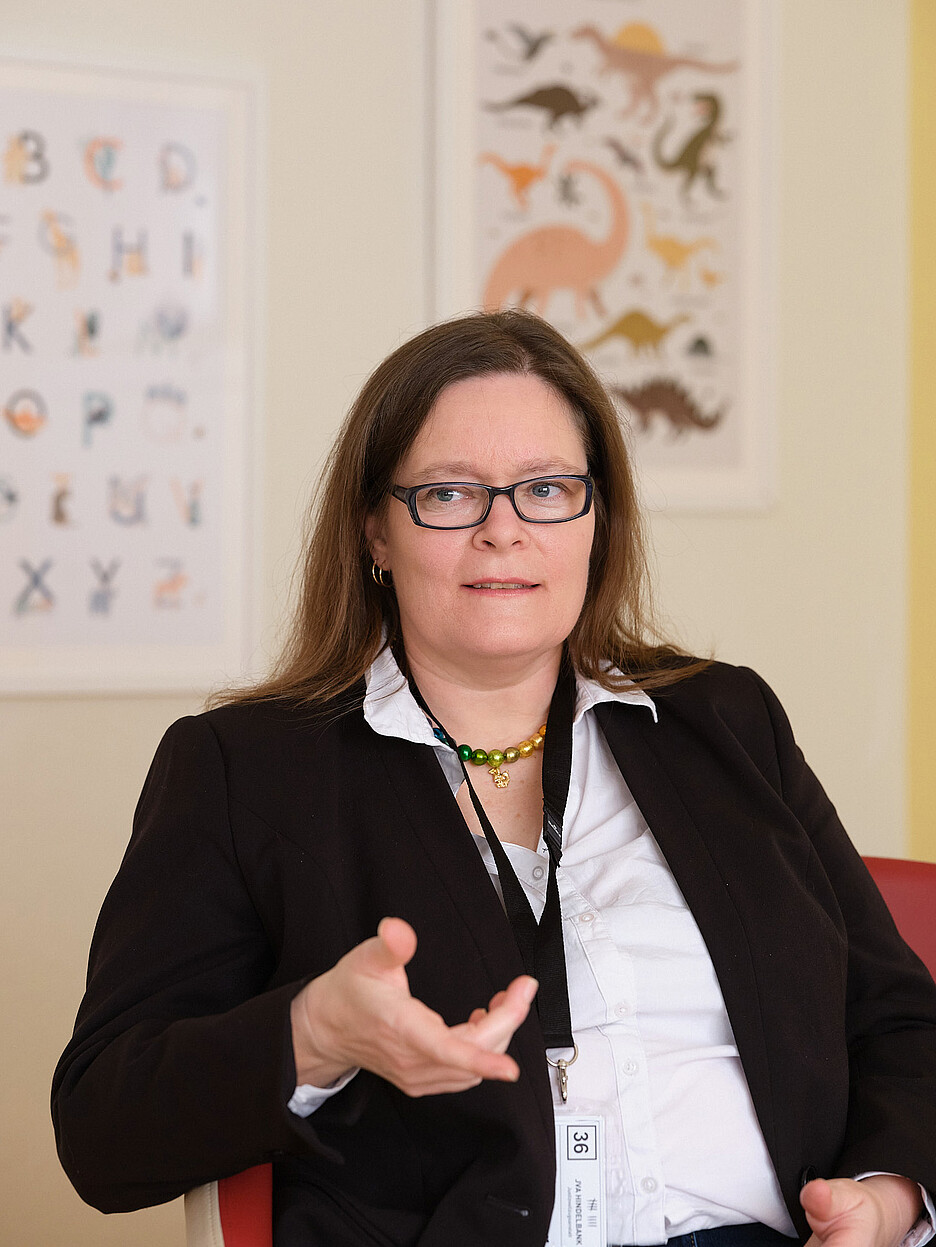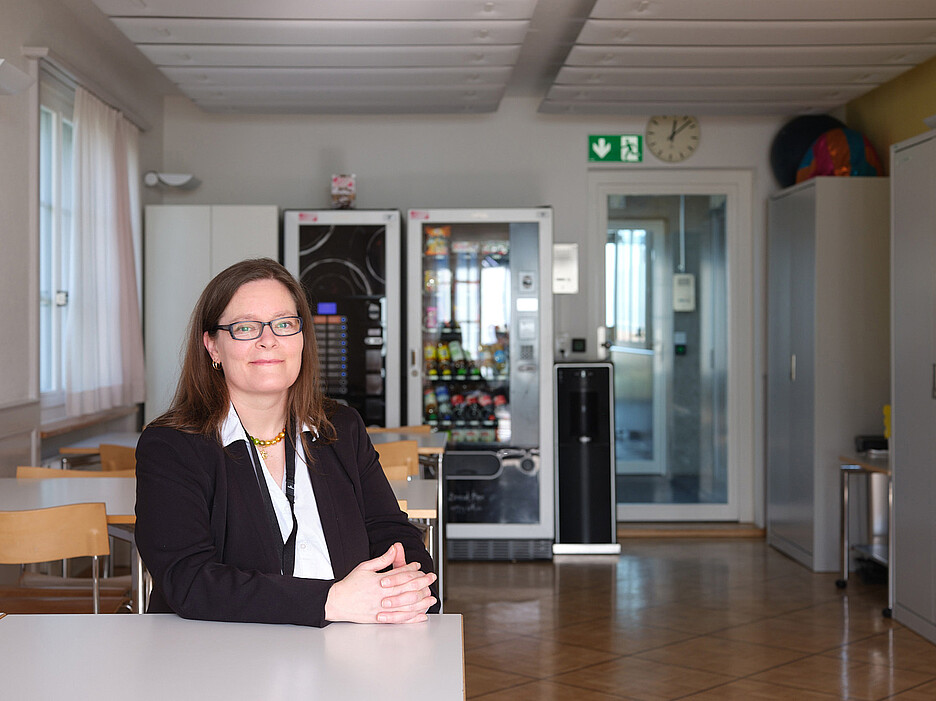
She conducts research on volunteering and volunteers herself to help prison inmates
Changing roles during everyday life is something that comes naturally to Sigrid Haunberger: the ZHAW researcher is not only a university lecturer, but also offers support to prison inmates and works as a German teacher for refugees. What links all of these roles is the theme of volunteering.
There are two things that particularly move Sigrid Haunberger in her life: her scientific work and volunteering. Together with Konstantin Kehl and Carmen Steiner, the researcher at the Institute of Management and Social Policy recently published the results of a research project on “volunteer management”. Haunberger’s research interest has always revolved around the topic of formal volunteering. She explains what is meant by this to the staff of the ZHAW School of Social Work as follows: “Formal volunteering is performed for charitable organisations such as associations and other non-profit organisations so that they can carry out their charitable services.”
Experience and time

Haunberger points to the fact that unpaid volunteering represents a central pillar of society in Switzerland, while the country’s demographic make-up is also changing. Against this backdrop, Haunberger and her team decided to look at what motivates people of retirement age to get involved. After all, society could benefit in a variety of ways from the work they perform: “Senior citizens bring a wealth of experience with them,” says Haunberger.
“Nobody should feel pressured into getting involved.”
Haunberger also adds that older people often have more time on their hands than others. What’s more, she believes that retirees can positively influence their own quality of life through volunteering. The emphasis here is on “voluntary.” “Nobody should feel pressured into getting involved,” says Haunberger. “However, it is important that those older people who would like to and are able to get involved have access to voluntary activities and that they are properly supported by the organisations.” With their book, Haunberger and her team want to support organisations in attracting interested retirees to perform volunteer work, while also offering these individuals assistance and recognising the contribution they make.
Retirees perform a great deal of voluntary work
To this end, the researchers wanted to find out which characteristics distinguish older volunteers, whether and to what extent organisations conduct volunteer management and whether there remains a need for action to be taken in this area. Haunberger shares that she was astonished to find that the “charitable organisations that responded to our survey were at an advanced stage of development with respect to their volunteer management.” Nevertheless, she was also taken aback at how differently the respective organisations support their volunteers. “While some conduct a kind of intake interview and offer comprehensive training for their volunteers, others throw them straight in at the deep end.”

What women have to deal with during everyday prison life

The 48-year-old Sigrid Haunberger has also always worked within organisations on a voluntary basis. “For me, volunteering is simply part of my life,” she says. She currently offers support to inmates at Hindelbank prison, the only prison for women in German-speaking Switzerland, visiting the detainees on a voluntary basis. Haunberger visits one of the inmates there regularly and talks to her “about God and the world,” as she puts it. “We have very animated discussions,” says Haunberger. “We talk about current social or political issues as well as things that concern women during their everyday prison life.”

Her work here is coordinated by a specialist unit of the Bern Office for the Execution of Penal Sentences and Justice. “While some inmates receive visits from their loved ones, others do not,” says Haunberger. It is for this reason, she explains, that those who want to can apply for a visit by a volunteer. “It is about fostering constructive relationships during the inmate’s time in prison in order to facilitate their later social reintegration.” Haunberger explains that, as a volunteer, she of course has no social work mandate and sees herself as a discussion partner who is able to be as objective as possible. Nevertheless: “It is a somewhat unfamiliar and also unclear role. I am neither a professional support worker nor a friend from her private life. This makes the work all the more fascinating for me.”
“What I do in volunteering directly benefits individuals. It is a heart-touching, meaningful experience.”
Her work as a volunteer perfectly complements her activities in the areas of research and teaching, says Haunberger, who was drawn to the world of research at an early stage in her career. While undertaking her studies in social work, she already felt the urge to delve deeper into the world of science and thus started a second degree in sociology shortly after graduating.
“I realise that I am privileged to be in a position where I can work and live on an 80% position,” says Haunberger, who adds that this makes volunteering all the more important to her. The committed researcher has a vision: employers could provide their employees with the opportunity to perform voluntary work during their working hours. She is convinced that “everyone would benefit.”
Book on volunteer management
Sigrid Haunberger, Konstantin Kehl, Carmen Steiner (Ed.): “Freiwilligenmanagement in zivilgesellschaftlichen Organisationen. Anwerben, Begleiten und Anerkennen von freiwilligem Engagement im Alter.” [Volunteer management in civil society organisations. Recruiting, supporting and recognising retiree volunteer workers.”] Seismo Verlag, 2022, also available on open access (in german).
0 Comments
Be the First to Comment!